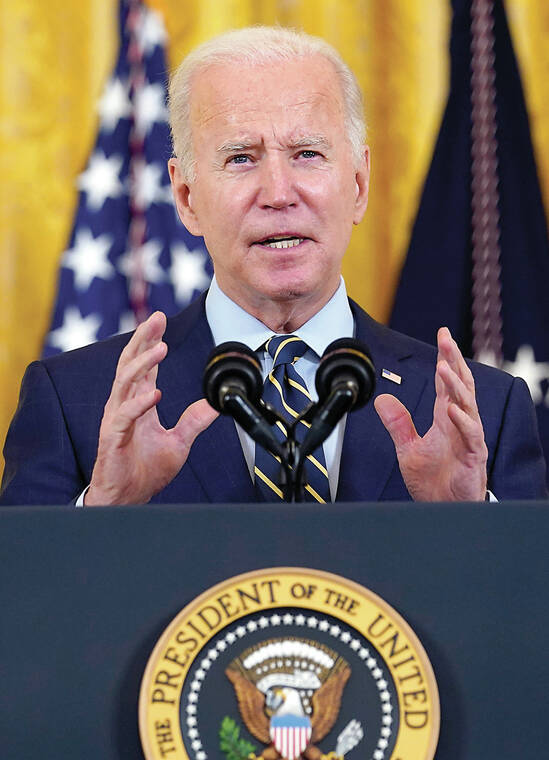Biden touts savings on insulin and other drugs for Americans
WASHINGTON — President Joe Biden pledged Monday that his social agenda legislation would deliver tangible savings on prescription drugs for all Americans. Relief that consumers have clamored for is now in sight, he asserted.
But first the bill has to pass Congress, where plenty of obstacles remain in its path.
ADVERTISING
Biden tried to shift the focus to pocketbook provisions overlooked in the political machinations over his $2 trillion legislation, which deals with issues from climate to family life and taxes. Even before concerns over rising inflation, polls consistently showed support from Americans across the political spectrum for government action to lower drug costs.
“It’s safe to say that all of us can agree that prescription drugs are outrageously expensive in this country,” Biden said at the White House.
“I’m committed to using every tool I have to lower prescription drug costs for Americans consistent with the drug companies getting a fair return on their investment,” he added.
But even if Biden and his fellow Democrats succeed in their final push to pass the legislation, a major political difficulty awaits them: Dividends from their prescription drug provisions won’t show up right away, while the pain of rising costs is real and present. Democrats will have to point to promised, not actual, savings in next year’s midterm elections.
The biggest policy change — a system for Medicare to negotiate prices for prescription drugs — won’t begin to deliver lower costs until 2025, and then only for a selected set of 10 medicines, as well as insulin products. The number of drugs subject to negotiations would build with time, reaching 100 in six years and continuing to grow by 20 a year.
Other provisions would take effect earlier.
• Copays for insulin would be limited to $35 a month, starting in 2023. Biden called the high cost of insulin “one of the most egregious examples” of overpriced medicines. He was introduced at the White House by a young woman, Iesha Meza, who couldn’t afford insulin for her Type 1 diabetes and was hospitalized in a coma.
• Drugmakers would be required to pay rebates to Medicare if they raise prices faster than inflation, starting that same year. The provision would benefit people with private insurance as well.
• Medicare recipients with high drug costs would finally get a cap on their annual financial exposure, $2,000 starting in 2024.
• Shingles vaccines and other shots covered under Medicare’s “Part D” pharmacy benefit would be cost-free to consumers, starting in 2024.


